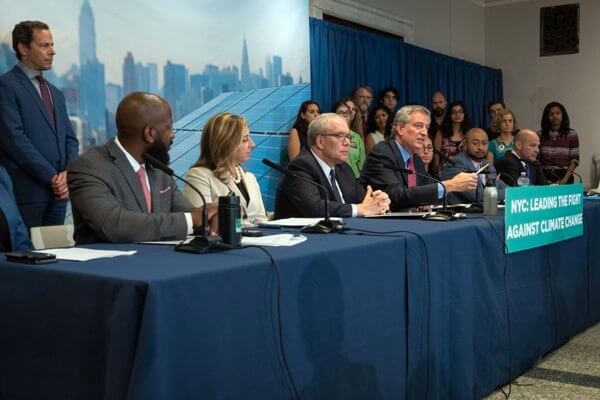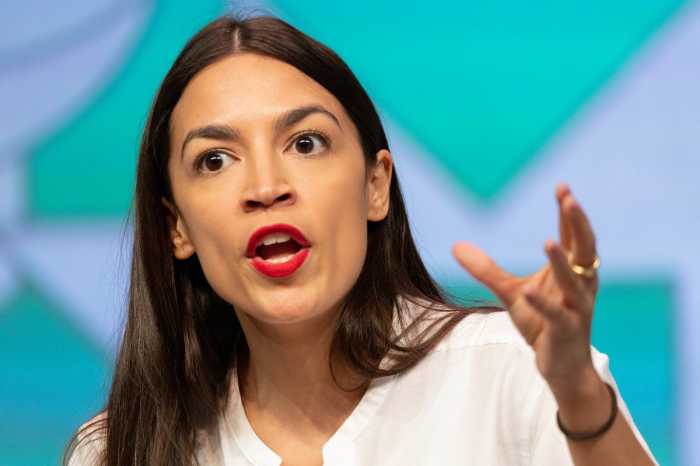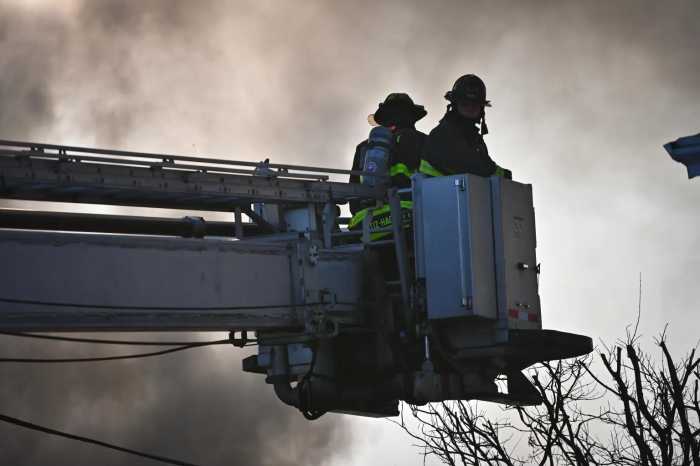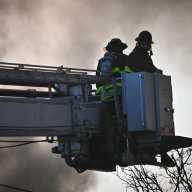By Mark Hallum
Prior to attending the Global Climate Action Summit in San Francisco, Mayor Bill de Blasio announced New York City would be investing $4 billion from pension funds over the next three years into climate change solutions and divesting from fossil fuels.
The $4 billion only accounts for 2 percent of the city’s $195 billion pension portfolio for government employees to retire, according to city Comptroller Scott Stringer, who said investing in clean energy would pay out in the long more than fossil fuels.
During the Sept. 13 news conference in Breezy Point, De Blasio used Hurricane Sandy to illustrate the need for investing in climate change mitigation after the unprecedented storm hit the city particularly hard and left many along Queens’ waterways without homes for years.
“We remember that Sandy left an extraordinarily negative impact on this city — we lost 44 lives because of Sandy. We lost $19 billion-worth of property. The impact was $19 billion on our city. This is one storm, and we’re having this discussion on a day when, as you said, the Carolinas are facing something that could be as bad or worse, all because of climate change,” de Blasio said. “This is a crucial, crucial step, and we’re going to be looking for more and more as we continue on our mission of 80 percent reduction in emissions by 2050. Once upon a time, that also sounded like an outlandish goal. Now, all over the world it’s being accepted as the norm.”
The city is looking to “change the paradigm” for public pension plans by investing in the programs that threaten other investments, such as fossil fuels, according to Stringer, who added that new investments will be reviewed by boards of individual pension systems to ensure they are consistent with their portfolio strategy.
“We have every intention of divesting from fossil fuel. Obviously there is a road map and a process to do that,” Stringer said. “We believe through our modeling, using our computer models and our pre-existing investments we can get to the two percent in three years. That’s why we calculated that would could add two billion dollars, right? So we actually went out and looked at where we are with our existing asset allocation. So we don’t have to go back to the trustees we believe and chain to the allocation. We believe we can add to it without radically changing it. Keep in mind that everything the Mayor and I do is with the full support of the trustees.”
Michael Mulgrew, president of the United Federation of Teachers, said the divestment from fossil fuels follows the trend of the city transferring investments from firearm and ammunitions manufacturing, in that in the coming years these financial assets will no long even be profitable.
“We believe those investments are going to be very, very bad in a short period of time, which is why we have also said we would like to get out. But it has to be done in a responsible way,” Mulgrew said. “People get their work done when we make these announcements the boards understand that this is the direction we’re asking them to do. We’re giving them the authority to do this in a responsible way.”
De Blasio said the city’s new investment strategy will in line with the Paris Agreement, which the United States has pulled out of under President Trump.
Reach reporter Mark Hallum by e-mail at mhall



































